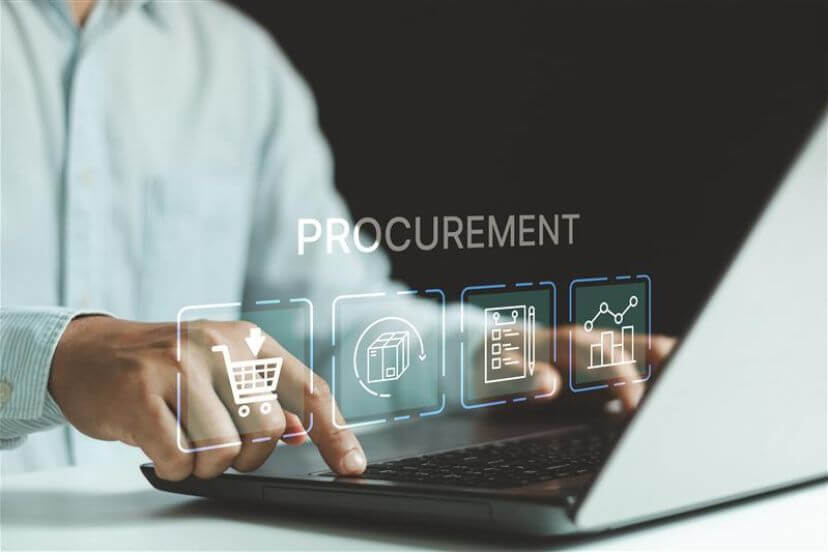Why Is It Important for CPOs to Understand Procurement Compliance

Procurement compliance in the UAE is a critical priority for Chief Procurement Officers (CPOs) tasked with managing supply chains and fostering vendor relations.
Amid rapidly evolving regulations under the UAE Government (UAE Gov), non-compliance can result in hefty fines, legal disputes, and harm to organizational reputation.
Understanding procurement compliance enables CPOs to align their practices with the law, ensuring efficiency and transparency while mitigating risks.
The Landscape of Procurement Compliance in the UAE
The UAE’s regulatory framework for procurement is structured to uphold ethical practices, drive economic growth and ensure transparency across supply chains.
CPOs must be familiar with several compliance aspects, including:
- Federal and Emirate-Level Laws:
Procurement laws in the UAE operate at both federal and emirate levels, necessitating a comprehensive understanding of regional nuances alongside overarching directives. - Vendor Prequalification:
Regulations mandate rigorous vetting processes to ensure suppliers meet quality, ethical, and financial standards.
- Government Initiatives:
Programs like Make It in the Emirates emphasize local sourcing and sustainable procurement, which CPOs must incorporate into their strategies.
- E-Procurement Adoption:
The UAE Gov is encouraging digital transformation in procurement, pushing businesses to adopt e-procurement solutions for better traceability and efficiency.
Why do CPOs need to Prioritize Procurement Compliance?
Risk Mitigation
Non-compliance exposes organizations to:
- Legal Penalties: Violations of procurement laws can lead to fines or project delays.
- Reputational Damage: Mismanagement can harm trust with stakeholders and the UAE Gov.
Cost Efficiency
Compliance with procurement regulations streamlines budgeting, eliminates unnecessary penalties, and enhances overall operational efficiency.
Enhancing Transparency and Trust
A strong focus on procurement compliance reflects ethical practices, and improving relationships with vendors, regulators, and investors.
Aligning with Strategic Goals
Procurement compliance supports broader organizational objectives, including sustainability, innovation, and local economic development initiatives championed by the UAE Gov
Key Compliance Challenges and How to Address Them
Staying Updated on Regulatory Changes
- Challenge: Frequent changes to procurement laws can be challenging to track and implement.
- Solution: Form a specialized compliance team or deploy AI-enabled procurement tools to monitor updates and ensure timely implementation.
Complex Approval Processes
- Challenge: Prolonged vendor approval and contract management timelines.
- Solution: Utilize e-procurement platforms to streamline workflows and minimize delays.
Diverse Stakeholder Expectations
- Challenge: Balancing regulatory compliance with internal stakeholder demands.
- Solution: Foster a culture of compliance by conducting regular training for procurement teams.
Case Study: Successful Procurement Compliance in the UAE
Problem:
A multinational corporation in the UAE encountered significant hurdles in vendor prequalification and audit compliance. They experienced delays in project execution and incurred penalties due to incomplete documentation.
Solution:
The company adopted a procurement solution tailored to UAE compliance needs. Key actions included:
- Automating vendor evaluations.
- Standardizing documentation processes to meet UAE Gov requirements.
- Conducting regular compliance audits using digital tools.
Outcome:
The organization achieved full compliance, minimized project delays by 30%, and enhanced its rapport with key government stakeholders.
The Role of Technology in Procurement Compliance
Digital tools are transforming procurement compliance in the UAE. E-procurement platforms provide:
- Automated Tracking: Monitor vendor performance and regulatory adherence in real time.
- Data Insights: Gain actionable intelligence to optimize procurement strategies.
- Audit Readiness: Ensure all documentation is readily available for regulatory reviews.
Integrating such digital tools not only streamlines compliance but also significantly boosts overall operational efficiency.
Conclusion
For CPOs, procurement compliance in the UAE extends beyond avoiding penalties; it is about aligning with government initiatives, embedding ethical practices, and achieving strategic objectives.
By staying informed on regulatory changes, leveraging technology, and fostering a culture of compliance, procurement leaders can navigate the complexities of the UAE’s regulatory environment effectively.
Investing in procurement solutions customized for the UAE market is pivotal to achieving long-term success and ensuring seamless operations in this dynamic region.

